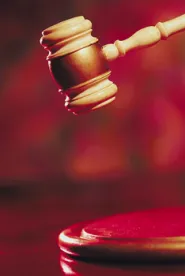Frederic Bourke Jr. (Bourke) recently lost a second appeal stemming from his 2009 conviction for violating the Foreign Corrupt Practices Act (FCPA). That conviction arose out of Bourke’s investment in a venture that sought a controlling interest in the Azerbaijani state-controlled oil company through that country’s privatization program. A jury found that Bourke made his investment with knowledge that bribes had been paid or were promised to high level government officials, including the then-President of Azerbaijan, to ensure the venture’s success in the privatization auction process. On November 28, a three-judge panel of the US Court of Appeals for the Second Circuit affirmed the decision of the US District Court for the Southern District of New York denying Bourke’s motion for a new trial under Federal Rule of Criminal Procedure 33(b), based on allegedly “newly discovered evidence” that probably would have resulted in an acquittal.
Bourke claimed that he was entitled to a new trial on the theory that the government knowingly allowed a cooperating witness to offer perjured testimony at trial on the critical issue of knowledge of the bribery scheme. The alleged “newly discovered evidence” of perjury was a statement by a government attorney at the appellate argument responding to the defense claim that because the government had documentary evidence in conflict with the cooperator’s testimony, the government should have rehabilitated the witness during pretrial preparation. Government counsel contended that “it would have been utterly improper for us to show [the cooperator] the [evidence] to point out to him that his recollection . . . was apparently flawed.” Bourke argued that the government’s statement was an admission that prosecutors knew of the discrepancy between the evidence and the witness’s testimony, and therefore knowingly introduced perjured testimony.
The Second Circuit, however, interpreted the statements as merely hypothetical. Because nothing indicated actual knowledge of either the discrepancy in the evidence or potential perjury, the court refused to characterize conjecture as “newly discovered evidence.” Moreover, it emphasized Bourke’s repeated, critical failure to prove that the cooperating witness actually committed perjury, as opposed to confused the facts. In light of these shortcomings, the Second Circuit held that the lower court did not abuse its discretion in denying the new trial. This decision represents yet another blow to Bourke, who previously lost a direct appeal of his FCPA conviction.
United States v. Bourke, No. 11-5390-cr (2d Cir. Nov. 28, 2012).



 />i
/>i